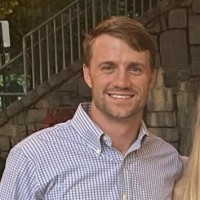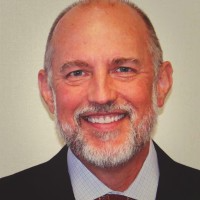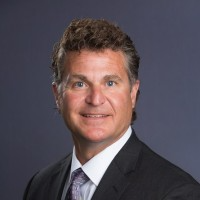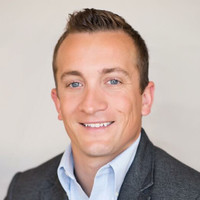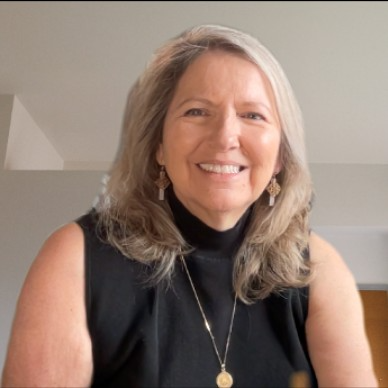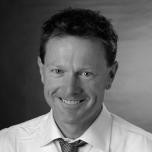Pre-Conference Workshop Day: Tuesday, June 2, 2026
Our workshop day is a standout favourite among operators, giving you the chance to dig into the technical challenges that matter most for your methane management strategy and offering practical, hands‑on guidance you can put to work immediately. Collaborate with peers, tackle real challenges, and explore new solutions with expert workshop leaders.
7:30 - 8:00
Registration and Networking Breakfast
AI is rapidly being adopted across the energy sector, but many implementations fall short because the data feeding them isn’t fit for purpose. This operator-led workshop dives into how to prepare your organization’s data architecture and culture to truly leverage AI for emissions management. From SCADA integration to model training and operational deployment, participants will examine how to align data quality, access, and structure to unlock measurable impact from AI investments.
- Understand what “AI readiness” really means — and how to identify and prioritize the data needed for effective model training.
- Explore how to integrate AI tools with SCADA and operational data streams to support predictive and real-time emissions management.
- Learn from practical examples of how AI-driven insights are reducing methane and operational inefficiencies in the field.
- Define best practices for scaling AI initiatives responsibly and embedding them within existing decision-making workflows.
The Natural Gas Innovation Fund (NGIF) is an industry-led organization that works directly with technology developers and gas operators to move methane solutions from concept to commercial reality. Through its Emissions Testing Centre (ETC), NGIF has built hands-on experience across a wide range of methane technologies, understanding not just how they work in isolation, but how they perform together in real operating environments.
- Understand how different technologies complement each other across monitoring, measurement, and mitigation strategies.
- Navigate NGIF’s new Technology Landscape (Pillar 1) to better understand available methane technologies, performance trends, and where different solutions fit across the value chain
- Apply insights from the Commercialization & Adoption Playbook (Pillar 2) to design stronger pilots, reduce deployment risks, and shorten time-to-scale
- Explore how Coterra is building a data-driven framework to track, assess, and optimize flare performance across changing flow rates and weather conditions
- Understand the operational and design improvements—from valving and controls to inspection frequency—that support reliable flare ignition and efficient combustion
- Review lessons learned from pilot testing flare performance cameras and ranking high-risk sites to prioritize maintenance and monitoring efforts
- Understand what member companies are learning as they implement Level 5 measurement-based inventories across different asset types and regions
- Learn about the latest technical updates to OGMP 2.0 and how they impact methane measurement, reporting, and verification strategies
- Explore how Level 5 reporting supports regulatory readiness, investor confidence, and alignment with global climate and policy frameworks
- Engage directly with the OGMP team through an open Q&A on practical, technical, and implementation challenges
9:30 - 9:45
Morning Networking Break
For the last 5 years, Kyle and Archrock have worked alongside leading operators to understand how methane reduction can be transformed from a compliance burden into a more efficient commercial, safety, and reputational advantage. In this workshop, they will bring their black book of best practices, real-world case studies, and proven strategies, leaving you with the insights needed to build a viable business case for methane reduction. This includes:
- Using laser technology to reduce an operator’s time spent performing leak checks and allowing for increased operational efficiencies
- Utilizing technology developments as a tool to escalate adoption of new processes while staying within budgetary guidelines
- Finding innovative ways to reduce company methane risks while leveraging emerging tech
As aerial technologies become integrated into methane detection strategies, the challenge is no longer just about obtaining and using the tools, it's about understanding the true detection capabilities of what you are using. We all know methane emissions are intermittent and difficult to quantify, making it crucial to evaluate the methodologies used and their accuracy. This workshop dives into the complexities of aerial detection, examining how to navigate its limitations and harness the data provided:
Join this workshop to:
- Understand detection limits and the precision of various aerial monitoring technologies
- Assess how drone technology can adapt to varying asset sizes and terrains, ensuring scalability across different sites
- Learn how the latest advancements in aerial gas mapping technologies can streamline detection processes and provide more accurate data
- Explore how real-time visual data supports rapid source identification and decision-making for emissions mitigation
Operators are under increasing pressure to deliver accurate, continuous methane emissions data—across diverse site types, under variable environmental conditions, and in alignment with regulatory and ESG expectations. But challenges persist: false positives, fragmented data sources, and limited visibility into root causes. Sensirion Connected Solutions, now integrating Kuva Systems’ imaging technology, offers a modular, operator-driven approach to methane monitoring. This workshop explores how combining fence line sensors, close-range detection, and image-based analysis can help operators build a fit-for-purpose strategy that improves accuracy, reduces emissions, and supports compliance. Attend to:
- Understand how to select and combine monitoring technologies based on site complexity, detection goals, and operational constraints
- Learn how to improve measurement accuracy and reduce false positives, through environmental compensation, sensor calibration, and visual confirmation of leak sources.
- Explore how continuous emissions monitoring systems (CEMS) can serve as a viable alternative to aerial detection, particularly in no-fly zones or areas with restricted airspace
- Gain practical strategies for integrating monitoring into operational workflows, enabling faster leak response, automated root-cause analysis, and reduced emissions.
- Receive guidance on aligning monitoring systems with regulatory demands
Measurement-informed inventories (MII) are emerging as a cornerstone for credible methane reporting worldwide. While uncertainties in detection technologies—such as emission rate accuracy and missed emissions below detection thresholds—are well recognized, they represent only part of the challenge. Factors like emission duration, frequency, activity data, and emissions factors also introduce significant uncertainty that must be addressed for robust, verifiable inventories. This workshop will explore practical approaches for characterizing and managing uncertainty across the entire MII process, ensuring inventories are both scientifically sound and commercially defensible.
- Understand the strengths and limitations of controlled release and field test data for methane detection technologies.
- Identify key sources of uncertainty beyond measurement accuracy, including operational and activity-based factors.
- Work through practical steps for building verifiable, measurement-informed inventories that meet regulatory and stakeholder expectations
- Learn methods for uncertainty characterization and mitigation to improve confidence in reported emissions data.
11:15 - 12:00
Networking Lunch
In the pursuit of energy independence, regulatory compliance, and cost-effective operations, detection best practices play a critical role in minimizing environmental impact while maintaining operational efficiency. This workshop provides a deep dive into optimizing detection methods, from fine-tuning aerial flyovers to achieving MIQ A-grade certification, all while ensuring compliance with stringent state regulation. Gain the tools and knowledge needed to demonstrate leadership in methane management and reinforce your commitment to responsible energy production. Attend to:
- Learn how to refine aerial flyovers by establishing the ideal frequency, altitude, and parameters for accurate and resource-efficient methane detection
- Build a pathway to MIQ A-grade certification by adopting strategies that integrate operational transparency with environmental responsibility
- Leverage data-driven insights from detection technologies to enhance reporting accuracy and support continuous improvement in emissions reduction

Keri Cimarolli
Director of Sustainability and Environmental StewardshipCalifornia Resources Corporation
Accurately detecting and quantifying methane emissions is essential for regulatory compliance and voluntary reporting. Yet, identifying the right mix of technologies and determining the most effective measurement frequency can be challenging—especially for operators managing diverse assets.
Howard Dieter leads Jonah Energy’s Environmental, Health & Safety and Strategic Energy Initiatives, including its industry-leading emission reduction efforts. Under his leadership, Jonah Energy became the first U.S.-based company to join the United Nations OGMP 2.0 and achieve Level 5 Gold Standard Reporting, setting a benchmark for transparency and performance.
In this workshop, Howard will share Jonah Energy’s practical approach to evaluating and implementing cutting-edge technologies to detect, measure, and ultimately reduce emissions. You’ll gain actionable insights from a company that has successfully integrated innovation with operational excellence.
Join this workshop to:
- Learn Jonah Energy’s proven strategies for combining complementary detection technologies to enhance accuracy
- Discover sequencing best practices that maximize efficiency and minimize operational disruption
- Determine the ideal measurement frequency to balance precision with cost-effectiveness
- Adapt real-world use cases to fit your operational requirements
Delivering real methane reductions isn’t about finding a single “perfect” technology, it’s about making the right combination work in messy, real operating environments. Paul Espenan is known for taking a highly collaborative, innovation-first approach, working closely with cutting-edge startups to co-develop abatement solutions that actually fit how operators run their assets. In this session, he shares practical lessons from integrating multiple abatement technologies across complex gas systems, focusing on what truly works on the ground, not just on paper.
- Discuss where the largest abatement opportunities sit across gas infrastructure and how to prioritize them based on operational realities
- Explore how vendor collaboration and co-development models are accelerating practical, operator-ready abatement solutions
- Examine how different abatement technologies can be integrated, sequenced and optimized for maximum impact across diverse asset types
- Understand how to evaluate abatement solutions through the lens of ROI, operational fit and scalability, not just technical promise
When it comes to emissions management, the challenge isn’t just technical, it’s cultural. Matt Garner, VP at Expand Energy, knows this better than anyone. Sitting at the crossroads of board-level strategy, investor expectations, and frontline operations, Matt’s job is to make sure everyone speaks the same language on methane management. From quarterly emissions reviews to aligning MAC curve projects with net-zero goals, he’s learned that success depends on more than data, it depends on people. This workshop dives into how operators can rally leadership and field teams around a shared vision, turning emissions management into a core part of business culture, KPIs, and operational integrity.
- Position emissions reduction as a strategic imperative tied to risk management, investor confidence, and long-term value creation
- Discuss practical ways to link methane performance directly to operational KPIs and reliability frameworks
- Integrate feedback loops and visibility tools that empower field teams to take ownership of emissions outcomes
- Benchmark approaches for fostering collaboration between engineering, operations, ESG, and finance to accelerate decision-making and cultural alignment
13:30 - 13:45
Afternoon Networking Break
Operators are deploying an ever-growing suite of detection technologies — from continuous monitors and aerial surveys to infrared cameras and handheld instruments. The next challenge lies in unifying this data into actionable intelligence. This session explores how operators are integrating multiple detection inputs into centralized automation and control environments, enabling real-time visibility, faster root-cause analysis, and proactive emissions management.
- Learn how to aggregate data from diverse detection systems into existing SCADA and historian frameworks
- Identify the data standards, analytics, and visualization tools needed to translate detection inputs into operational insight
- Explore use cases where integrated emissions data has improved reliability, reduced event response time, and strengthened decision-making
- Understand how unified data platforms are building the foundation for autonomous, data-driven methane management
Operators are looking for smarter, faster ways to identify and address methane emissions across vast asset networks. Satellite-based detection offers a powerful complement to ground-based methods, delivering persistent, high-resolution insights across assets, regions, and timeframes. GHGSat’s asset-level data gives operators a strategic edge: the ability to prioritize interventions, optimize resources, and reduce emissions with precision.
Join this workshop to:
- Establish the true detection capability of satellites
- Interpret satellite-detected methane plumes and translate findings into actionable mitigation strategies
- Overcome data interpretation challenges across diverse geographical regions and operational contexts
- Leverage satellite insights to prioritize field investigations, optimize resource allocation, and demonstrate proactive environmental stewardship to stakeholders
- Integrate satellite data with existing emissions management systems for a comprehensive view of methane sources across your assets
Historically, continuous emissions monitoring systems (CEMS) have not been standard or widely accepted tools for OGMP 2.0 Level 5 measurement. However, as technologies mature and deployment experience grows, they are increasingly demonstrating strong potential to support high-quality, measurement-based inventories. Led by LongPath Technologies, this workshop will explore how continuous monitoring is evolving from a supplementary tool into a credible component of Level 5 reporting strategies. Through real-world deployment examples, participants will see how operators are using CEMS data today to enhance emissions visibility, reduce uncertainty, and strengthen confidence in OGMP-aligned inventories.
- Understand why CEMS has historically faced limitations within OGMP Level 5 and how those barriers are now starting to be addressed
- Evaluate where continuous monitoring can add value within current Level 5 methodologies and reporting workflows
- Identify practical lessons from real-world LongPath deployments that show how CEMS can complement OGI, aerial and satellite measurements
- Apply emerging best practices for integrating CEMS data into measurement-based methane inventories and mitigation strategies
As methane programs mature, many operators have improved their detection capabilities and, in many cases, driven down emissions significantly. The challenge now is less about finding more data and more about effectively integrating abatement solutions into existing operations. This workshop introduces the Methane Abatement Toolbox as a practical framework for understanding how different abatement approaches fit into real operating environments — from retrofits and process changes to novel technologies. Join this workshop to:
- Frame methane abatement as an investment decision, linking solution performance directly to operational and financial outcomes
- Identify high-impact abatement opportunities based on source type, operational context, and marginal cost of reduction
- Understand how novel abatement technologies are demonstrating ROI in real operating environments — beyond pilot results
- Apply a practical decision-making framework to prioritize mitigation investments across their portfolio.
15:30 - 17:30
Masterclass & Afternoon Tea: From Molecule to Market: Rethinking Gas Supply Chains in a Low-Methane Economy
Sharon Paterson -
Director of Business Development,
MiQ
Ben Webster - Policy Director, MiQ
As global energy markets shift, methane performance is becoming a critical differentiator in how gas is traded, valued and accessed across regions. Beyond cross-border flows, leading operators are now using independent methane standards domestically to strengthen credibility with investors, insurers and commercial partners, and to differentiate assets in a more accountability-driven capital environment.
This masterclass will explore how leading producers and gas buyers are responding to this shift, as low-methane gas transitions from a sustainability ambition into a commercial and procurement reality. It will examine how MRV, traceability and interoperability are influencing contracting structures, market access, and long-term competitiveness in global gas markets — from North America and Europe to Asia-Pacific. In parallel, it will also look at how these same frameworks are being deployed within domestic markets, shaping emissions reporting practices, strengthening credibility with investors and insurers, and influencing capital allocation, insurance risk assessments, and asset positioning in a post-GHGRP landscape.
18:30 - 20:00
Methane Excellence Awards & Welcome Reception
Following an incredible celebration last year, the Methane Mitigation Excellence Awards is back!
Join us as we honour the trailblazers driving measurable impact in methane reduction. This is more than an awards ceremony, it’s a chance to reconnect, share ideas, and celebrate the achievements shaping the future of our industry. Enjoy an evening of networking over canapés and refreshments, as we spotlight the operators and innovators who are setting new standards for excellence.




